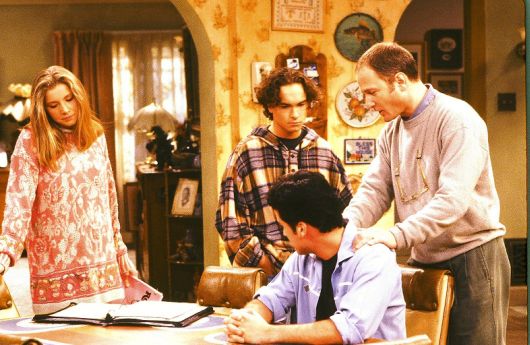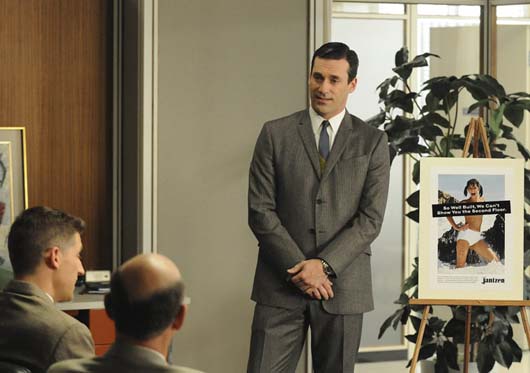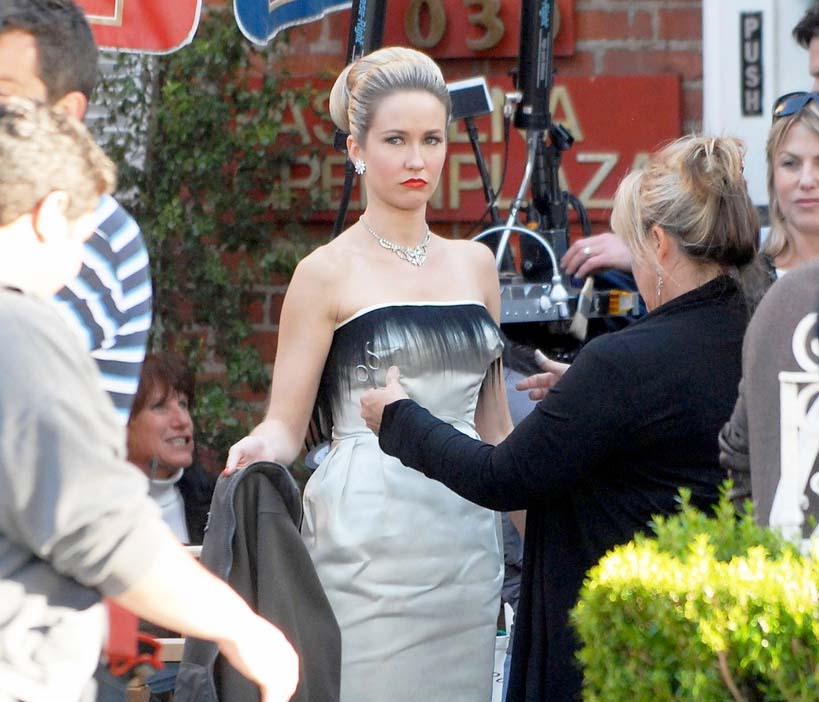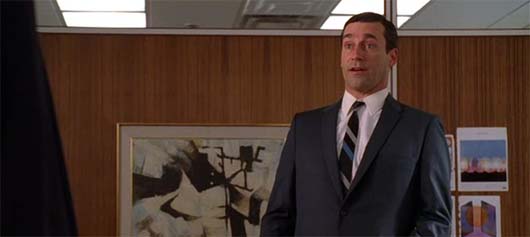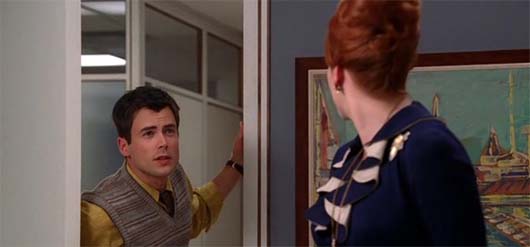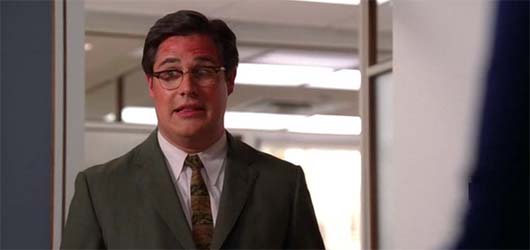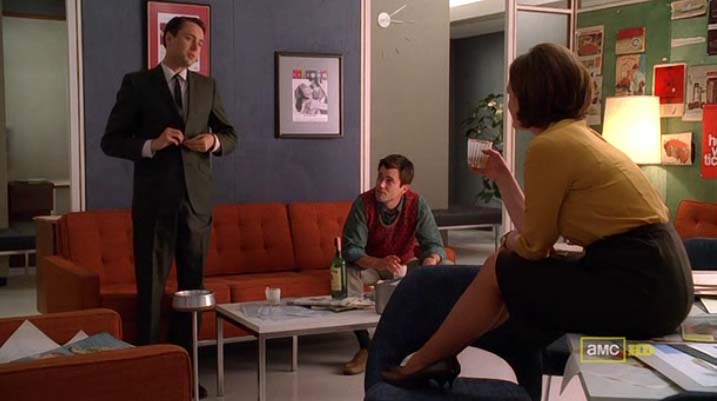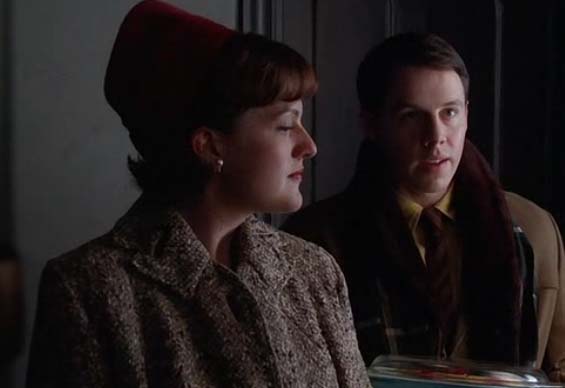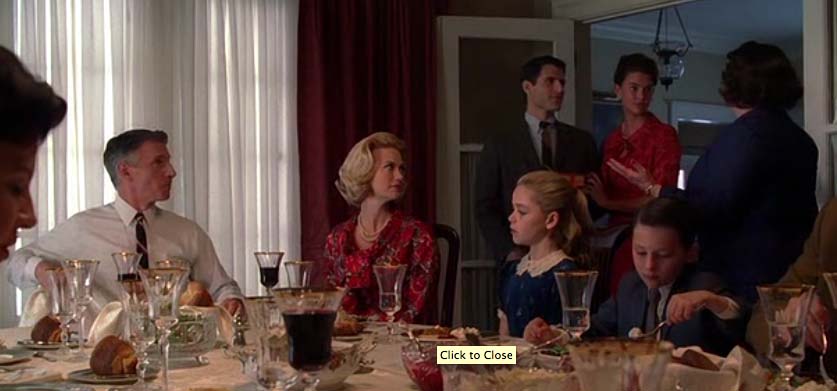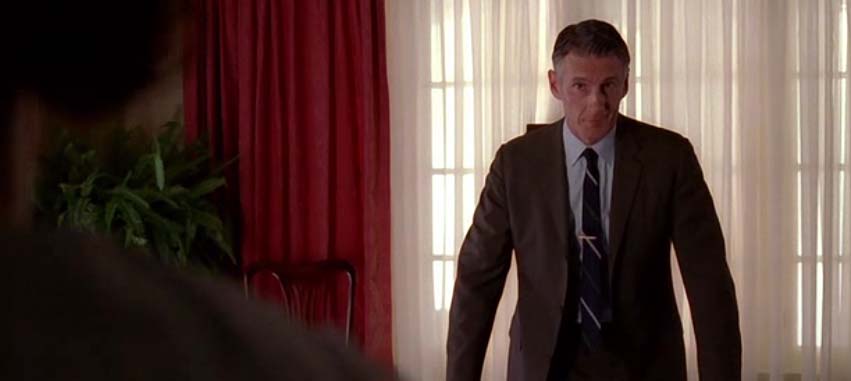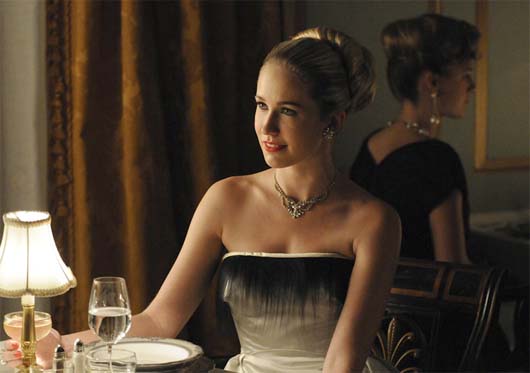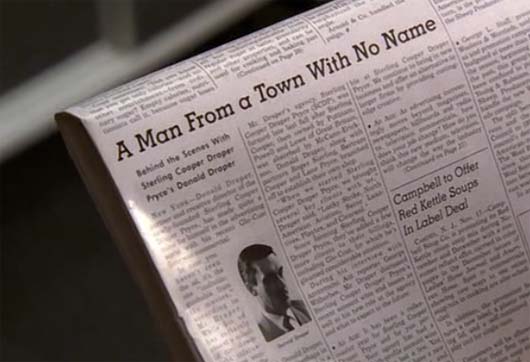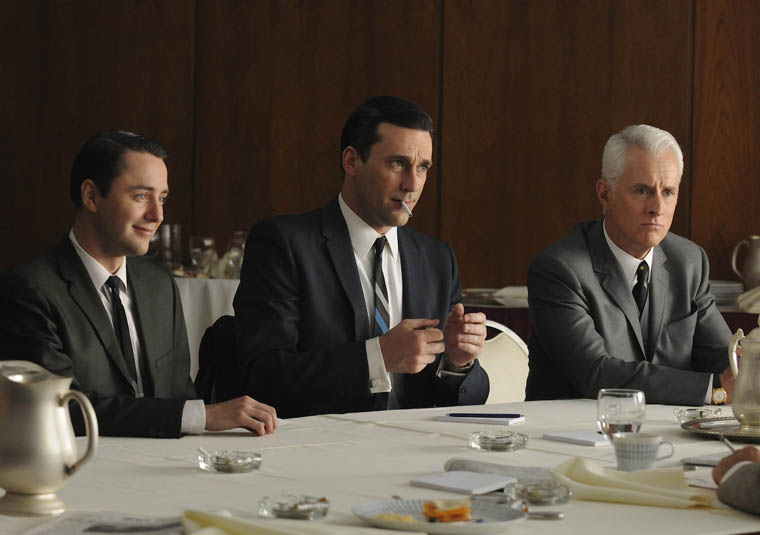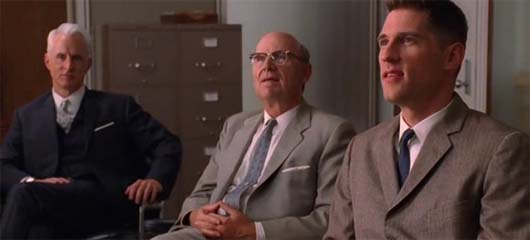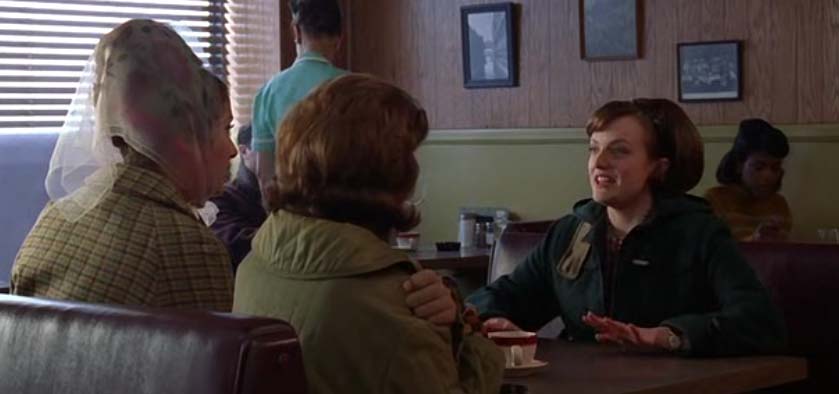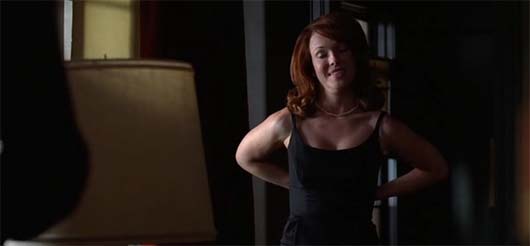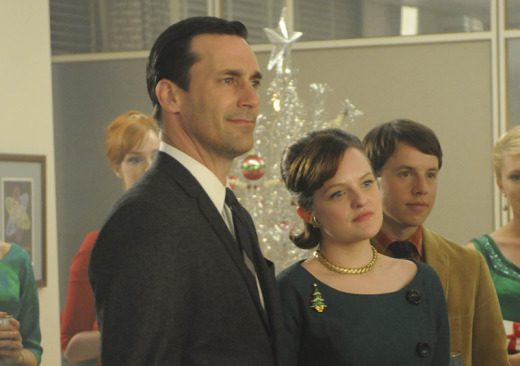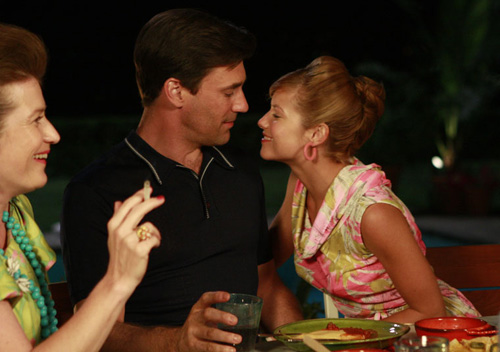 TV
TV In Which We Were Born In The Mud
 Friday, January 7, 2011 at 12:24PM
Friday, January 7, 2011 at 12:24PM 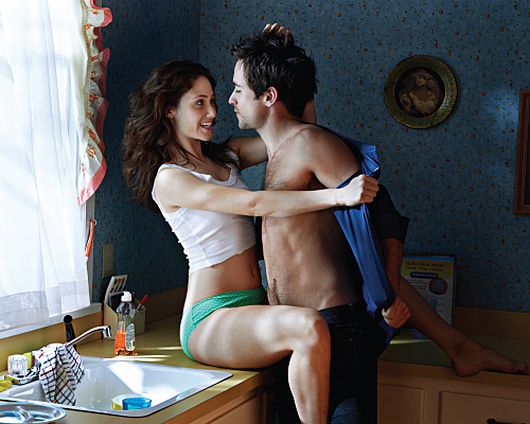
Don't Look So Affected
by ELEANOR MORROW
creator John Wells
premieres Sunday, January 9th
The glorification of American poverty is at an all-time high during periods of recession, the glorification of American wealth is always at an all-time high. In case you don't remember how Roseanne began, the female Jackie Gleason worked at a plastics company with her sister Jackie, who was dating her supervisor. The foreman was named Booker Brooks, and he was played by George Clooney. The subtext was obvious: how bad exactly was American poverty when your sister was dating George Clooney?
Ronald Reagan spent the 1980s broadcasting optimism after a period of economic struggle, an attitude that disgusted Roseanne Barr. By 1989, in only its second season, Roseanne shot to the top of the Nielsen ratings and remained there until most of the cast was replaced by Sarah Chalke, who would go on to be the only actress in Hollywood other than Rachel Bilson willing to kiss Zach Braff with tongue. The current number one comedy on television takes place in a beach house in Santa Monica: Roseanne tried to make us really feel the pain of Lanford, Illinois.

Perhaps unsure about whether the public wanted a show about incredibly rich people or incredibly poor people, Fox placed its only two new comedies on its fall schedule back-to-back. First came My Name Is Earl creator Greg Garcia's series Raising Hope about the poorest people on the block, followed by Mitchell Hurwitz' return to collaboration with Will Arnett in Running Wilde, about the richest people on it.

Garcia's previous effort may have been more boring and preachy than a Sunday sermon, but the real core of situation comedies depends on whether the audience has an ongoing connection to the plight of these characters. Initially titled Keep Hope Alive, Raising Hope concerns Jimmy (Lucas Neff), who becomes a father after his one-night stand is revealed to be a serial killer who is executed after giving birth to his daughter Hope. Despite featuring more messages than an after-school special, the plot and situations are never phony or unbelievable, and Martha Plimpton plays the best female character in television outside of the late Lucille Bluth as Jimmy's mother.
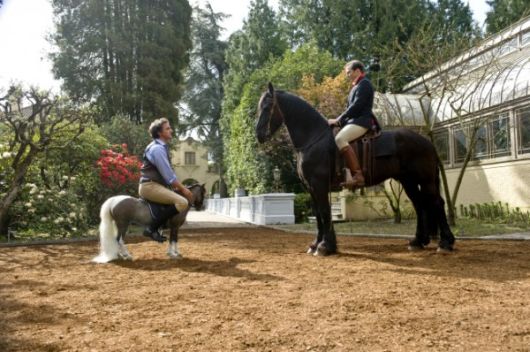
In contrast, it should surprise no one that a series about the rich son of an oil magnate (Arnett) who wants to copulate with a woman (Keri Russell) who lives for free in his treehouse and was the daughter of his family's maid has not exactly struck home with American audiences. Even though the aforementioned Two and a Half Men takes place in brightly appointed haunts, everything from the dialogue to the characterization of a man-whore and his poor chiropractor brother (Jon Cryer) screams otherwise.
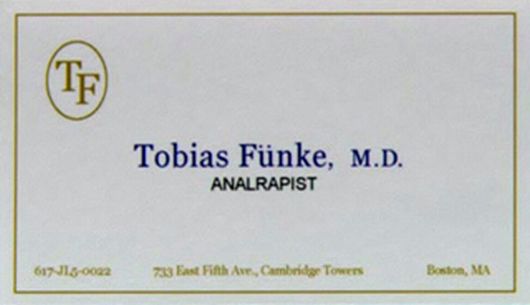
It was really a plague of unfunny scripts that doomed Running Wilde with critics (the show is already deader than Keri Russell's sex appeal). From the beginning the Will Arnett vehicle had no chance with audiences, who ran from Arrested Development, the series that originally ruined puns for the world. Development proved that no matter how funny a show is, if you don't create sympathetic characters, audiences will never attach themselves to the serial plot. How exactly are Roseanne and Dan Conner supposed to sit down and enjoy an episode on whether it's harder to care for a child or attend a high society gala, or about a misunderstanding between Will Arnett and Andy Richter over whether or not each is gay? The show's writers had so much trouble thinking up storylines for Keri's daughter Puddle that she made a diorama in three straight December episodes.
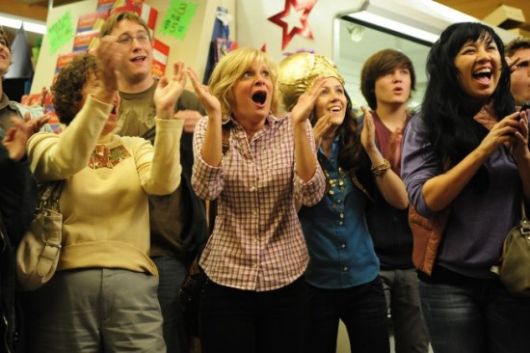
Despite being presented to the identical audience, Raising Hope got a full season order and there are already $ signs in the eyes of Fox executives, while Mitchell Hurwitz has to sit through his 4,058th meeting about a movie of a show no one watched. The message is clear — if you want ratings, pity, not envy, is the right emotion to tap into in the hearts of mainstream Americans.
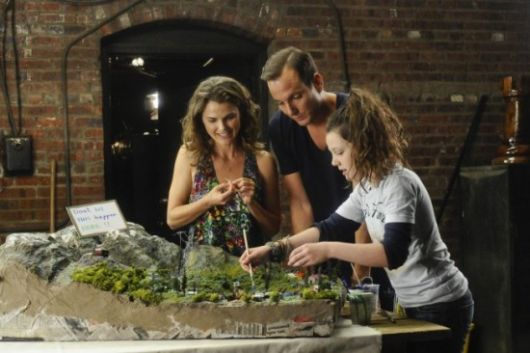
Would it surprise you to know that none of the shows I have mentioned so far has a single black character? (The joke on Running Wilde's ethnic butler is that he steals from his employer. Funny!) Raising Hope's Jimmy has friends of color, but they get 1/4058th of the screen time of Cloris Leachman, whose portrayal of Hope's great-grandmother deserves some kind of commemoration from the Obama administration. My point is that shows about how hard the world is end up making poverty appear heartwarming and fun.

You will not have this problem during the opening moments of the new Showtime series Shameless, translated from the popular British show of the same name. The only possible thing you will be thinking about is the exposed carapace of Fiona Gallagher (Emmy Rossum), whose constant contortions and pervasive near-nudity constitute a more stimulating way of saying the show is on premium cable than the dull and profane narration of her single father, Frank Gallagher (William H. Macy). The five other children are distinguishable by their abilities: Ian Gallagher (gay), Phillip Gallagher (smart), Debbie Gallagher (female), Carl Gallagher (cat murderer) and a baby (African-American).
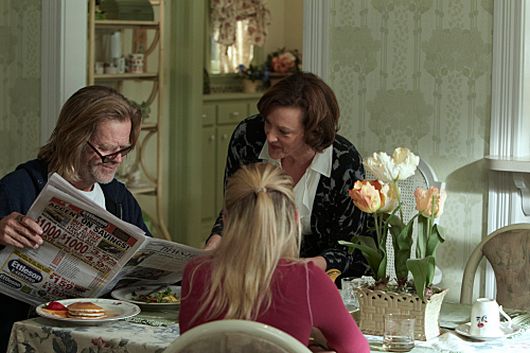
It must have been extremely tempting to just transport the entire cast of Juno to the show's Chicago setting, and indeed Allison Janney was the first choice for Frank's love interest. In the ensuing pilot, she has been replaced by Joan Cusack. Cusack is only 48, but her best option is an alcoholic father of eight hundred? Maybe she can go back in time and beat out Laurie Metcalf for the role of Jackie. Normally, this would only be a small subplot among a greater array of complications, but it turns out that being extremely poor on television is really not that bad in comparison to being poor in real life.
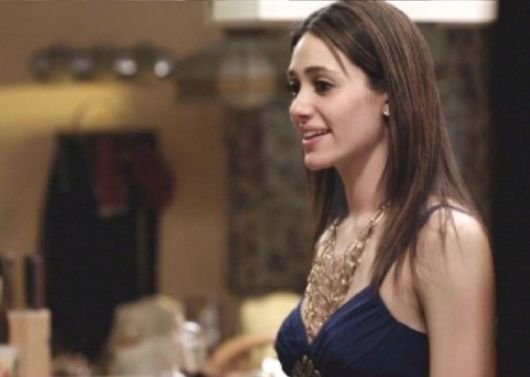
Rossum's Fiona is the show's protagonist, although we only see her in the role of sex object or mother. The point of her existence on the show is to make us ask, "Should someone that beautiful be working concessions at a hockey game?" (The correct answer is maybe.) The point of her multiple brothers and sisters on the show is to create a jovial, Brady Bunch-esque atmosphere in order to address Real Issues. It should come as no surprise to anyone that not only are the Gallaghers poor, they're also homophobic, multiracial, homosexual racist animal-torturers. Their house alone should horrify anyone who knows how to operate a vacuum cleaner, and it is supposed to.
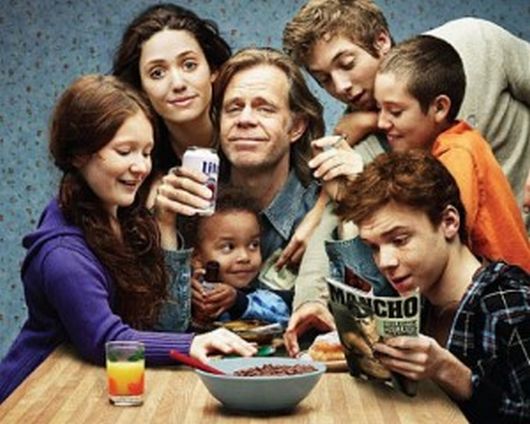
Above all, the Gallaghers are wonderfully happy, like clowns in Shakespeare. They may all have to crowd around one table at breakfast, but the important thing is that they have breakfast together, not the size of the table. Prepaid cellphones are available in every neighborhood in America for the price of a hamburger, but the Gallaghers share minutes on one cell phone, because poverty is a transient thing that can be passed around or ignored when feasible.
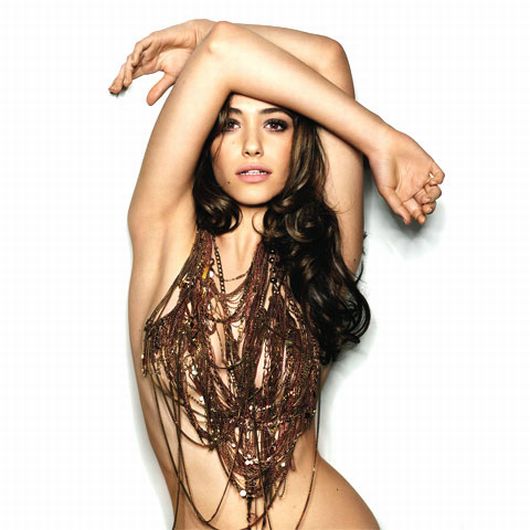
After her purse gets snatched at a Chicago club, Fiona meets her knight in shining armor, Steve (Justin Chatwin). In the show's least believable moment, he parks his Jaguar on her street. After having condomless intercourse with Fiona on her kitchen counter while her father is returned to the house by the police, he convinces her to be photographed for the above modeling portfolio, and ten years later she is accepting a check for $20 million to star in The Tourist. Well, they do have unprotected sex, that much is true.
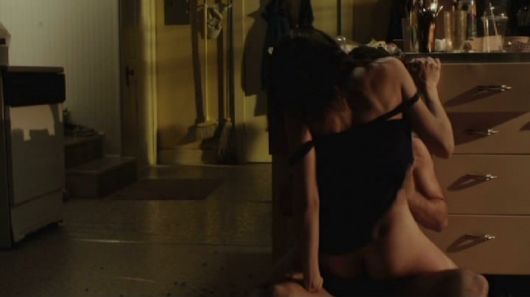
Since Showtime mostly reaches upscale homes, the audience is turned into the good witch Glenda, hoping against hope that Dorothy will be plucked out of some depraved existence. I don't know whether it is sadder that whiny TV critics think Shameless is an approximation of lower-class Chicago, or that TV writers think residents of upper class Chicago are more worried about how hard "they party" — in the words of Frank Gallagher — than caring for their children.
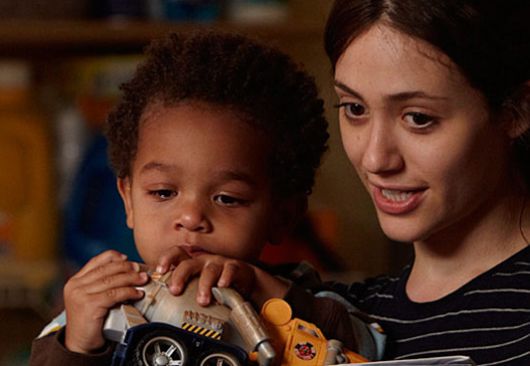
Ronald Reagan suggested the Gallaghers should pull themselves up by their bootstraps. George Bush wondered if a bootstrap was what he used to ride horses at Kennebunkport, Bill Clinton felt their pain and appeared in every Southern Baptist Church in the country. George W. Bush barely left Crawford, Texas except in an ATV or Air Force One and Barack Obama took a million dollar Christmas vacation in his home state. The point of Roseanne was that poor people in Lanford were just like us. The point of Shameless is that they aren't.
Eleanor Morrow is the senior contributor to This Recording. She last wrote in these pages about the ITV series Downton Abbey.
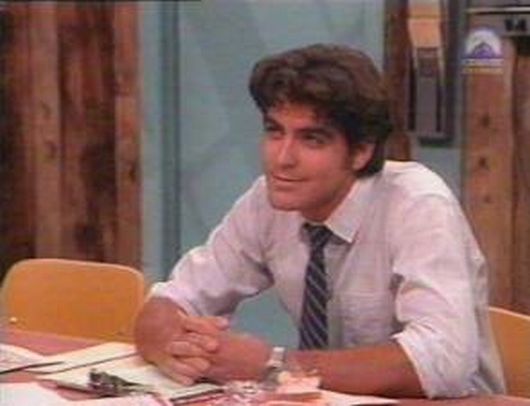
"Around Us (acoustic)" - Jonsi (mp3)
"Animal Arithmetic" - Jonsi (mp3)
"Time to Pretend (MGMT cover)" - Jonsi (mp3)
